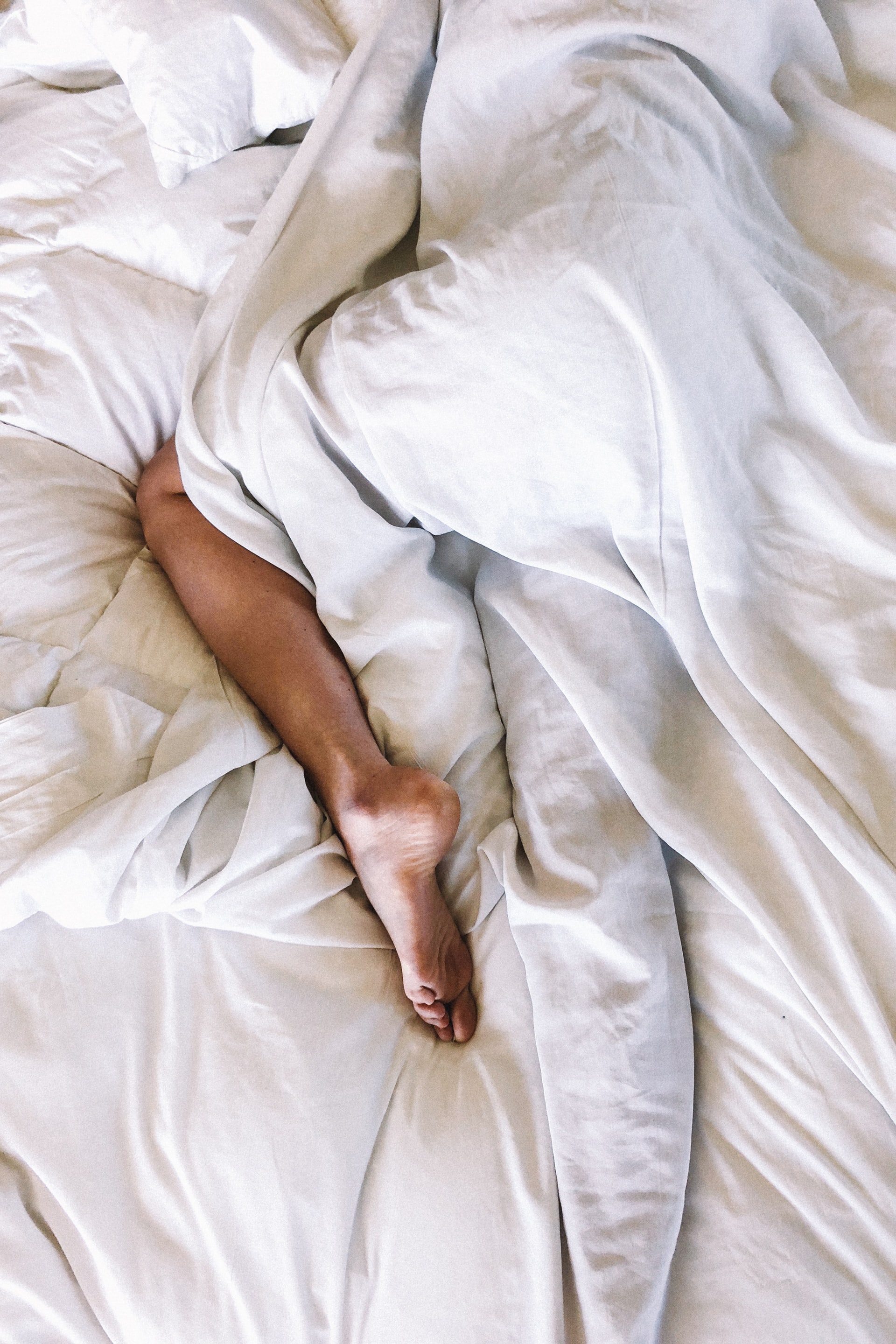Sex As A Sleep Promoting Behavior - What Is The Science Behind Sex?
The fundamental explanation for sex as a sleep-promoting behavior is a neuro-hormonal process that facilitates sleep after sexual intercourse. Following an orgasm, the body produces chemicals such as oxytocin and prolactin, which may provide pleasurable and calming emotions. Sex also lowers cortisol levels, which are related to stress.
Author:Suleman ShahReviewer:Han JuDec 08, 202256 Shares750 Views

The fundamental explanation for sex as a sleep promoting behavioris a neuro-hormonal process that facilitates sleep after sexual intercourse.
Following an orgasm, the body produces chemicals such as oxytocin and prolactin, which may provide pleasurable and calming emotions.
Sex also lowers cortisol levels, which are related to stress.
Sex As A Sleep Promoting Behavior
Sex and sleep are necessary for maintaining physiological and psychological well-being.
The association between sexual activity and sleep is poorly understood.
Following orgasm, the simultaneous release of oxytocin, prolactin, and cortisol inhibition may result in a sleep-inducing effect.
Sexual intercourse causes an increase in oxytocin, which has been linked to a higher quality of lifeand a decrease in stress (cortisol).
No gender differences were discovered in sleep latency or duration across three conditions: no masturbation (light reading in bed), masturbation without orgasm, and masturbation with orgasm.
This deserves further consideration since sexual activities followed by climax may have a facilitative influence on human sleep and provide a non-pharmacological option for enhancing sleep.
Instruments And Participants Of The Survey
Between October 2016 and June 2017, Michele Lastella, Catherine O'Mullan, Jessica L. Paterson, and Amy C. Reynolds of Central Queensland University in Australia performed an anonymous online survey on 778 individuals aged 18 and over (442 females, 336 men; mean age 34.5 11.4 years).
All individual participants in the research gave their informed permission. Participants were recruited via social media sites (such as Twitter and Facebook) and professional networks. Frontiers in Public Healthreported the findings.
Pre-validated questions from the Australian Study of Health and Relationships and the Pittsburgh Sleep Quality Index were incorporated into the survey questionnaire.
The survey has 49 questions on sleep/wake patterns, sexual activities, and demographic information, including age, gender, sexual orientation, and relationship status.
The first portion collected demographic information about the individual.
"How old are you in years?" was a common query. "Gender," "Your relationship status," and "Your sexual identity (how you identify your sexual orientation)."
Sexual Activity Before Bed And Sleep Perceptions
There were significant gender variations in perception of sex with a partner and its influence on future sleep quality and latency.
A more significant percentage of males reported improving sleep quality and sleep after sex with a partner.
The cause for the difference between males and females was not investigated in this research, although the gender gap in orgasm frequency might explain it; men are more likely to orgasm during sex with a partner than women.
Sex With A Partner Before Sleep
Most significantly, there were no variations in reported sleep quality or latency between males and females when sex with a partner included an orgasm. Most men and women said that orgasm enhanced their sleep quality and latency.
These data seem to support Brody and Krüger's theory that greater levels of oxytocin and prolactin after orgasm may provide a sleep facilitatory effect.
Furthermore, their data support Leeners et al., who linked better levels of sexual pleasure and orgasm quality with higher levels of prolactin in women.
Only 3–6 percent of the subjects said they slept worse after having sex with a partner and orgasm.
These results imply that orgasmic sex with a partner may promote and enhance sleep for both genders.
Masturbation Before Sleep
Surprisingly, there were no gender differences in assessments of the influence of masturbation on sleep quality or sleep start with or without orgasm.
These results broadly support the findings of Brissette et al., who found no gender differences in sleep outcomes as a consequence of solitary masturbation.
These data showed that more than half of the subjects improved their sleep quality by masturbation, culminating in orgasm.
Sleep Sex Disease
Sexsomnia, often known as sleep sex, is a parasomnia sleep condition.
People who suffer from sexsomnia engage in sexual behaviors such as masturbation, sexual movements, sexual aggressiveness, or initiating sex with another person.
Though their eyelids are comprehensive and they make sexual sounds, they sleep throughout these activities and are ignorant of their actions once awake.
Experts struggle to quantify how many individuals suffer from sexsomnia.
The illness may strike abruptly, and a person may not realize suffering from it until another person recognizes the symptoms.
However, approximately 8% of participants at a sleep facility showed signs of the disorder.
Sexsomnia may be embarrassing and distressing for the person experiencing it and their partners.
However, depending on the underlying cause of the parasomnia, therapyis available and may involve the use of drugs or lifestyle modifications.
People Also Ask
Why Do Men Sleep After Sex?
"After the climax, a man's bodily chemistry alters," explains David McKenzie, a sex therapist in Vancouver.
"Prolactin, a biochemical, is produced, physically changing his body and making him exceedingly fatigued."
Does Sex Make You Want To Sleep?
When you orgasm, your brain produces a mix of neurochemicals that exhaust you.
During sex, the brain produces oxytocin, which increases desire and excitement.
However, as it wears off, it might leave you tired and feeling exhausted.
What Is Nocturnal Sexsomnia?
Sexsomnia, often known as sleep sex, is a parasomnia sleep condition.
Parasomnias are odd feelings and behaviors that individuals may experience or display during sleeping, falling asleep, or waking up.
Why Does Sex Give You Good Sleep?
Sex causes the release of hormones that may help to improve sleep.
For example, having sex releases hormones such as Oxytocin, the feel-good hormone, and Prolactin, a pituitary gland hormone that helps relax the body and allows you to go asleep more quickly.
Conclusion
When sexual activities culminate in an orgasm, there are no gender variations in judgments of the influence on sleep.
While orgasms with a partner tend to be the most beneficial for sleep outcomes, orgasms experienced by self-stimulation may also improve sleep quality and latency.
Engaging in safe and enjoyable sexual activity (alone or with a partner) before sleeping may give the whole adult population a healthy behavioral approach to increasing their future sleep.
It is important to remember that sexual activity is a taboo subject that is seldom mentioned in many social settings.
Future studies must study individuals' physiological reactions to sexual conduct if we are to grasp sex as a sleep promoting behavior.
Efforts to eliminate the stigma connected with this issue are also required.

Suleman Shah
Author
Suleman Shah is a researcher and freelance writer. As a researcher, he has worked with MNS University of Agriculture, Multan (Pakistan) and Texas A & M University (USA). He regularly writes science articles and blogs for science news website immersse.com and open access publishers OA Publishing London and Scientific Times. He loves to keep himself updated on scientific developments and convert these developments into everyday language to update the readers about the developments in the scientific era. His primary research focus is Plant sciences, and he contributed to this field by publishing his research in scientific journals and presenting his work at many Conferences.
Shah graduated from the University of Agriculture Faisalabad (Pakistan) and started his professional carrier with Jaffer Agro Services and later with the Agriculture Department of the Government of Pakistan. His research interest compelled and attracted him to proceed with his carrier in Plant sciences research. So, he started his Ph.D. in Soil Science at MNS University of Agriculture Multan (Pakistan). Later, he started working as a visiting scholar with Texas A&M University (USA).
Shah’s experience with big Open Excess publishers like Springers, Frontiers, MDPI, etc., testified to his belief in Open Access as a barrier-removing mechanism between researchers and the readers of their research. Shah believes that Open Access is revolutionizing the publication process and benefitting research in all fields.

Han Ju
Reviewer
Hello! I'm Han Ju, the heart behind World Wide Journals. My life is a unique tapestry woven from the threads of news, spirituality, and science, enriched by melodies from my guitar. Raised amidst tales of the ancient and the arcane, I developed a keen eye for the stories that truly matter. Through my work, I seek to bridge the seen with the unseen, marrying the rigor of science with the depth of spirituality.
Each article at World Wide Journals is a piece of this ongoing quest, blending analysis with personal reflection. Whether exploring quantum frontiers or strumming chords under the stars, my aim is to inspire and provoke thought, inviting you into a world where every discovery is a note in the grand symphony of existence.
Welcome aboard this journey of insight and exploration, where curiosity leads and music guides.
Latest Articles
Popular Articles
